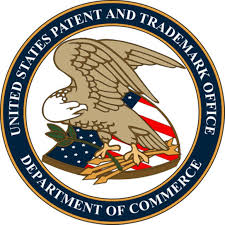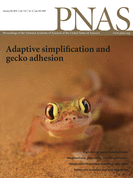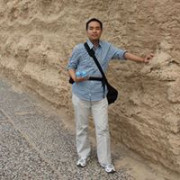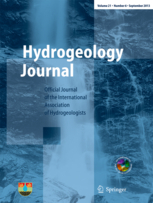 The former director of the X-ray crystallography lab at the National Institute of Arthritis and Musculoskeletal and Skin Diseases, part of the National Institutes of Health, who was found by the Office of Research Integrity to have faked findings in three papers, is once again earning a government salary, this time as a patent examiner, Retraction Watch has learned. Continue reading Exclusive: Former NIH lab head who faked data now working as government patent examiner
The former director of the X-ray crystallography lab at the National Institute of Arthritis and Musculoskeletal and Skin Diseases, part of the National Institutes of Health, who was found by the Office of Research Integrity to have faked findings in three papers, is once again earning a government salary, this time as a patent examiner, Retraction Watch has learned. Continue reading Exclusive: Former NIH lab head who faked data now working as government patent examiner
Category: united states
New favorite plagiarism euphemism: “Inadvertently copied text”
 Plagiarism earned genomics researchers an erratum, not a retraction, in BioMed Central journal BioData Mining.
Plagiarism earned genomics researchers an erratum, not a retraction, in BioMed Central journal BioData Mining.
We keep a list of best euphemisms for plagiarism, and this one is right up there.
Here’s the notice for “An iteration normalization and test method for differential expression analysis of RNA-seq data”: Continue reading New favorite plagiarism euphemism: “Inadvertently copied text”
Former Pitt cancer researcher admits to faking findings

A former researcher at the University of Pittsburgh inflated the number of mice used in his experiments, and faked data in a number of images in a paper reporting the results, according to the Office of Research Integrity (ORI).
Dong Xiao admitting to having
intentionally fabricated data contained in a paper entitled ‘Guggulsterone inhibits prostate cancer growth via inactivation of Akt regulated by ATP citrate signaling,’ specifically Figure 6G,
the ORI reports. The paper was published in in July 2014 in Oncotarget. Here’s Figure 6: Continue reading Former Pitt cancer researcher admits to faking findings
Authors get away with throwing quotation marks around plagiarized passages. Again.
 Back in November 2013, we wrote about a correction in PNAS about a May 2012 paper by a group from Toronto and Mount Sinai in New York who, as we said at the time
Back in November 2013, we wrote about a correction in PNAS about a May 2012 paper by a group from Toronto and Mount Sinai in New York who, as we said at the time
had been rather too liberal in their use of text from a previously published paper by another researcher — what we might call plagiarism, in a less charitable mood.
Continue reading Authors get away with throwing quotation marks around plagiarized passages. Again.
Franken-paper from U.S. federal contractor heads to the grave

Hindawi journal PPAR Research has pulled a cancer immunology paper after discovering it contained almost no new information.
Instead, it was a Frankenstein-style stitch job, containing sentences ripped from 33 different papers. 18 of those ended up in the citations; for 15 more, the authors didn’t even do them that courtesy. You can see a meticulously color-coded call out here.
Here’s the notice for “A Role for PPARy in the Regulation of Cytokines in Immune Cells and Cancer”: Continue reading Franken-paper from U.S. federal contractor heads to the grave
Oklahoma postdoc admits to faking data in grant application, submitted paper

A postdoc at the Oklahoma Medical Research Foundation faked data in a submitted paper and in a grant application, according to a new report from the Office of Research Integrity.
Bin Kang admitted to the misconduct, in which he Continue reading Oklahoma postdoc admits to faking data in grant application, submitted paper
U Colorado “golden boy” grad student faked data in drug lab, says investigation
 A graduate student at the University of Colorado Denver faked data in his work at a drug research lab that has notched two retractions and an expression of concern over “data integrity,” according to an extensive university investigation.
A graduate student at the University of Colorado Denver faked data in his work at a drug research lab that has notched two retractions and an expression of concern over “data integrity,” according to an extensive university investigation.
It seems like many more retractions are on the horizon for grad student Rajendra Kadam, who worked in the lab of Uday Kompella, a pharmaceutical researcher at the university.
Here’s an excerpt from the report, which you can read in full (but redacted) here: Continue reading U Colorado “golden boy” grad student faked data in drug lab, says investigation
Drug company lawyer letter results in “utterly tedious” retraction

What’s in a name?
Well, if it’s the same name as a treatment with nearly $1 billion in sales per year in the U.S., a retraction.
A “mind numbingly boring one,” that is.
Here’s the Twin Research and Human Genetics notice for “EpiPen: An R Package to Investigate Two-Locus Epistatic Models”: Continue reading Drug company lawyer letter results in “utterly tedious” retraction
PLOS Genetics investigating paper by Ariel Fernandez

Ariel Fernandez‘s list of papers with editorial asterisks next to them grew again this week.
Fernandez has had one paper retracted, two papers subject to Expressions of Concern, including one from Nature, and another put on hold over data concerns. He threatened to sue us for covering one of the Expressions of Concern.
Here’s the “Notice from PLOS Genetics” for “Protein Under-Wrapping Causes Dosage Sensitivity and Decreases Gene Duplicability:”
Please be advised that PLOS is working with the authors on an investigation regarding one or more issues that have been raised with respect to the content or authorship of this paper.
We asked Fernandez for more details. He did not provide any, saying only that the criticisms of the work “have no scientific value” because they were made anonymously: Continue reading PLOS Genetics investigating paper by Ariel Fernandez
Water under the bridge? Hydrology journals won’t retract plagiarized papers despite university request
 In April 2014, we wrote about the case of a former hydrologist at the University of Kansas (KU), Marios Sophocleous, who had plagiarized in at least seven studies, two of which were retracted by the journal Ground Water.
In April 2014, we wrote about the case of a former hydrologist at the University of Kansas (KU), Marios Sophocleous, who had plagiarized in at least seven studies, two of which were retracted by the journal Ground Water.
At the time, we mentioned two other articles, in the Hydrogeology Journal, that appeared destined for retraction — not least because KU requested that the journal yank them. But in a rather surprising move, the journal is declining to do so, and another publication, the Journal of Hydrology, is taking the same approach.
Here’s the notice from Hydrogeology Journal editor Clifford Voss: Continue reading Water under the bridge? Hydrology journals won’t retract plagiarized papers despite university request